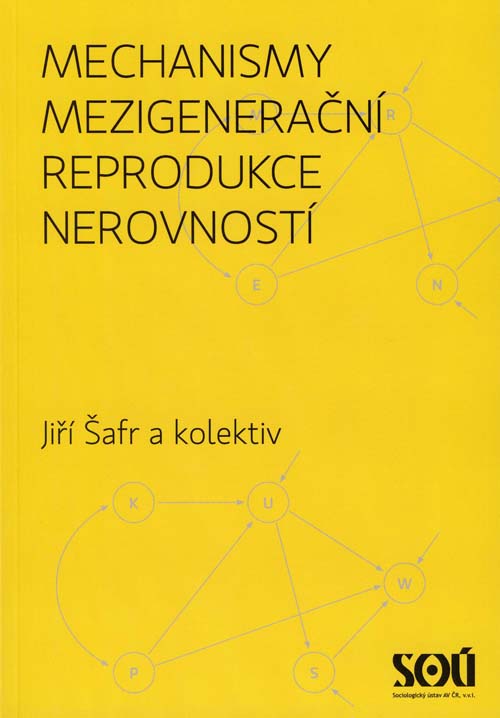Häuberer, Julia, Jiří Šafr. 2012. „Sociální kapitál a jeho vliv na status v počátku profesní kariéry“. Pp. 50-67 in Šafr, Jiří a kolektiv. Mechanismy mezigenerační reprodukce nerovností. Praha: Sociologický ústav AV ČR, v.v.i.. 166 s. ISBN 978-80-7330-188-0.
The monograph deals with intergenerational transmition of social inequalities during family socialization employing data from the survey "Distinction and Values" (2008) which surveyed cohorts ages 30–34 along with their parents. The results show: 1. strong reproduction of social status/class position and also partly lifestyle (leisure activities) in adulthood – it is determined by class position of parents jointly with family’s accessible resources (social and cultural capital) 2. also these cultural resources (namely active and democratic parenting style and pro-reading climate), though unequally distributed, are efficiently supporting upward mobility from disadvantaged class position. This affirms theoretical model of cultural mobility rather than rigid reproduction. 3. individual factors (reading in childhood, academic performance and educational attainment) and to some extent also non-cognitive personality traits (conscientiousness and emotionally stable personality) contribute to upward mobility. Generally, it stands that culture is important tool in intergenerational struggle to secure advantageous position is social space.
Authors
Department
Topics
Value Orientations, Work, Social Capital
